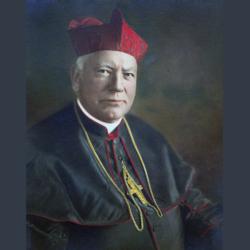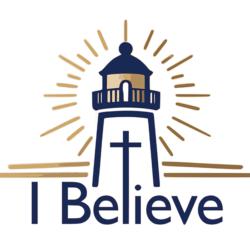Modeling a 'post-truth' faith
''What do you want?"
"Rabbi -- where are you staying?"
"Come and you will see."
So they went and saw where he was staying, and they spent that day with him. It was about four in the afternoon. (John 1: 38-39.)
This simple little interaction at the very beginning of John's Gospel holds a significant kernel for us as we think about our own relationship with Jesus and those we hope to walk with. Jesus had just been declared Messiah and Lamb of God who "takes away the sins of the world" -- but on that very same day, he made time for Andrew, Simon, and perhaps a few others. These men weren't significant, and they didn't advance his Messiahship in any way at that point. But in John's recollection, you can tell it made an impact that this elevated Rabbi gave them his whole day.
Previously, we heard that "youth ministry, properly understood, involves a network of adult disciples who care and invest time in getting to know young people while accompanying them on their journey through life and journey of faith." Those are sacred verbs, special actions.
Care -- invest -- know -- accompany
These actions answer so many of the real and felt needs of young people today:
Does anyone care about me? Does anyone really know me? Do I really know myself?
Perhaps most critically -- if anyone knew the real me, would they still care about me?
As our world has appeared more fractured and families are collapsing under the weight of a hyper-secularism, many of the civil foundations that communities have relied upon are proving to be abject failures. As a body of believers, we have the precise solution to all the angst and all the current despair. And yet, a core issue in youth ministry and catechesis has always remained: How do we deliver this great news to a community of young people so desperate to receive it.
In a word, the delivery vehicle of the Gospel is trust.
Young people (and increasingly, their families) believe in or follow what they can trust. This is unchanged from 30-40 years ago but the terms have changed. Coming up before the tragedy at Columbine, much of youth ministry and training was necessarily about having the right responses and apologetics for the faith. Trust had to be established through knowledge, logic, and clear argumentation. Kids and families couldn't trust what didn't make sense to them.
But in a post-Columbine, post-9/11, post-scandal, post-pandemic world, nothing makes sense anymore! In fact, the 2016 Oxford languages word of the year was "post-truth." As a living community of Christ's Spirit, the world no longer cares about our arguments or whether or not a life of faith makes sense.
The proof in today's world is in the quality of our own lives, shared with those we love.
Consider three essential building blocks for establishing trust as we walk alongside young people.
First, this essential quality cannot be fabricated; it must genuinely come from the love of the Father, the Son, and the Holy Spirit. There is no short-cut and there is no "program." Only by staying personally connected to the love of God and then pouring that love through trusting relationships into young people and families will we see the fruitful and life-giving impact we hope and pray for.
Second, this takes real intentionality. Intentionality means knowing when to show up and what to be present for. We see this intentionality in Jesus's introduction when he just happened to walk by the river at the same time the men from Galilee were present. Intentionality means having an awareness of the hobbies, activities, and schedules of our young people and prioritizing their reality as much as we can. Young people notice who is present with them and for them and they place a premium on your presence. Presence is the starting block of trust, the centerpiece of accompaniment.
Third, to impact a community requires a team effort. By sharing the load and communicating with regularity, young people will sense and feel that they are being invited into something healthy, caring, and larger. Our own relationships with one another become a witness to the value and quality of our faith. It is healthy to ask ourselves if our own ministry team is a place that young people would find attractive and inviting.
News of Jesus's Messiahship spread literally as he was "on the way" from one town to another. May we have the courage and conviction to spend our time on the road with our young people as they take the next steps in their journeys.
DEACON NATHAN GUNN SERVES AS THE INITIATIVES COORDINATOR FOR YOUNG LIFE GLOBAL CITIES AND THE EASTERN DIVISION. HE LIVES IN SYRACUSE, NEW YORK, WHERE HE ALSO SERVES IN THE DIOCESE THROUGH TEACHING SCRIPTURE AND THEOLOGY IN DEACON FORMATION.



















